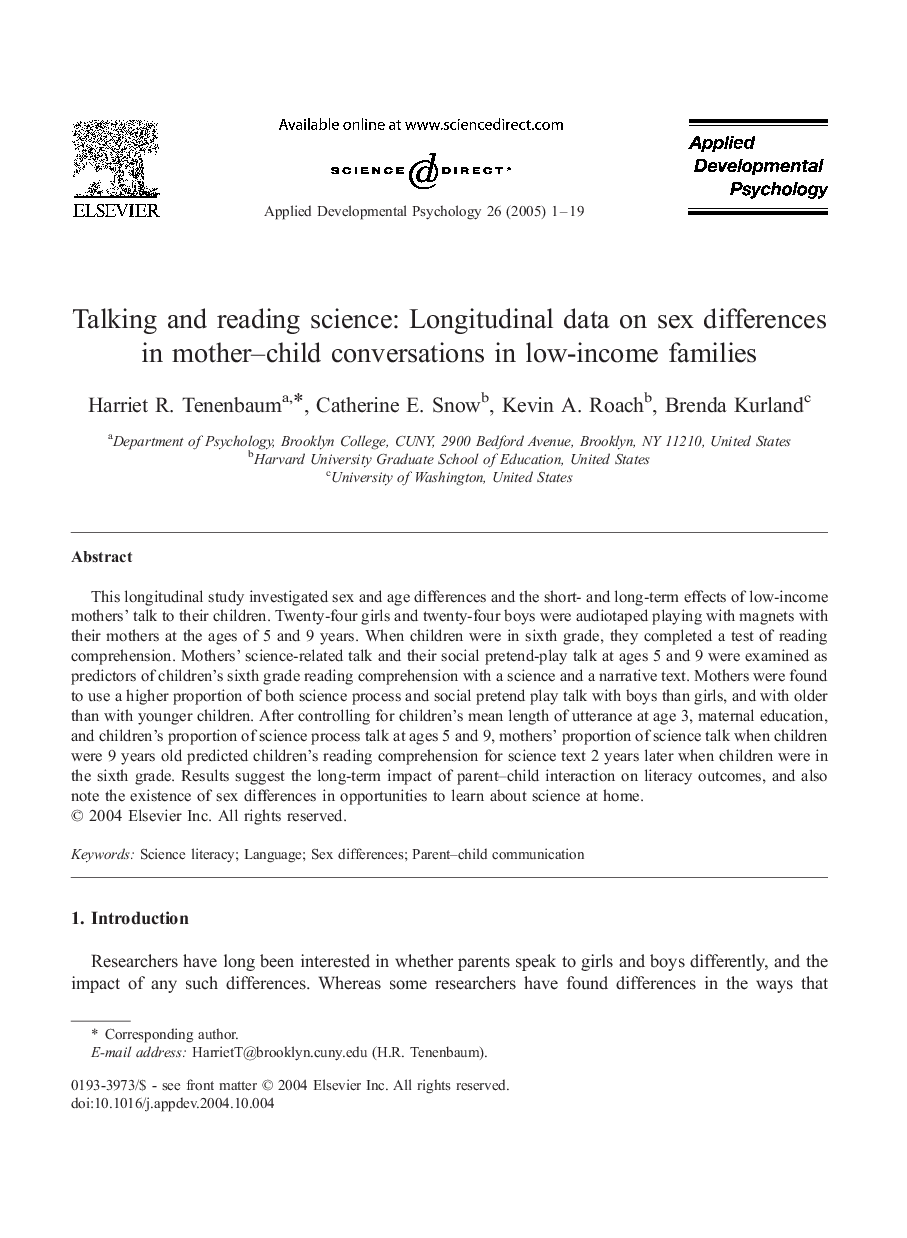| Article ID | Journal | Published Year | Pages | File Type |
|---|---|---|---|---|
| 10314434 | Journal of Applied Developmental Psychology | 2005 | 19 Pages |
Abstract
This longitudinal study investigated sex and age differences and the short- and long-term effects of low-income mothers' talk to their children. Twenty-four girls and twenty-four boys were audiotaped playing with magnets with their mothers at the ages of 5 and 9 years. When children were in sixth grade, they completed a test of reading comprehension. Mothers' science-related talk and their social pretend-play talk at ages 5 and 9 were examined as predictors of children's sixth grade reading comprehension with a science and a narrative text. Mothers were found to use a higher proportion of both science process and social pretend play talk with boys than girls, and with older than with younger children. After controlling for children's mean length of utterance at age 3, maternal education, and children's proportion of science process talk at ages 5 and 9, mothers' proportion of science talk when children were 9 years old predicted children's reading comprehension for science text 2 years later when children were in the sixth grade. Results suggest the long-term impact of parent-child interaction on literacy outcomes, and also note the existence of sex differences in opportunities to learn about science at home.
Related Topics
Social Sciences and Humanities
Psychology
Applied Psychology
Authors
Harriet R. Tenenbaum, Catherine E. Snow, Kevin A. Roach, Brenda Kurland,
